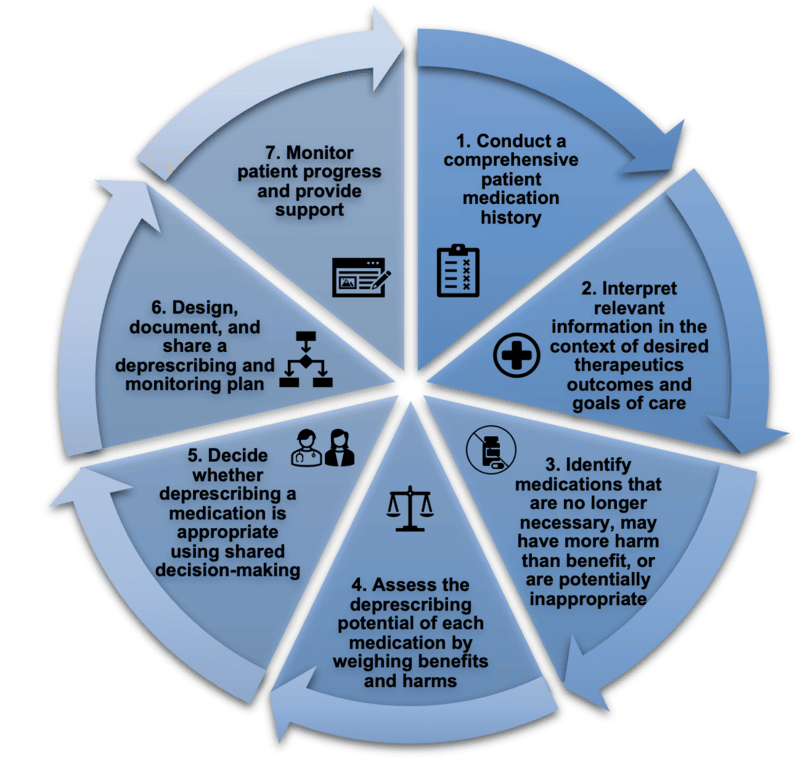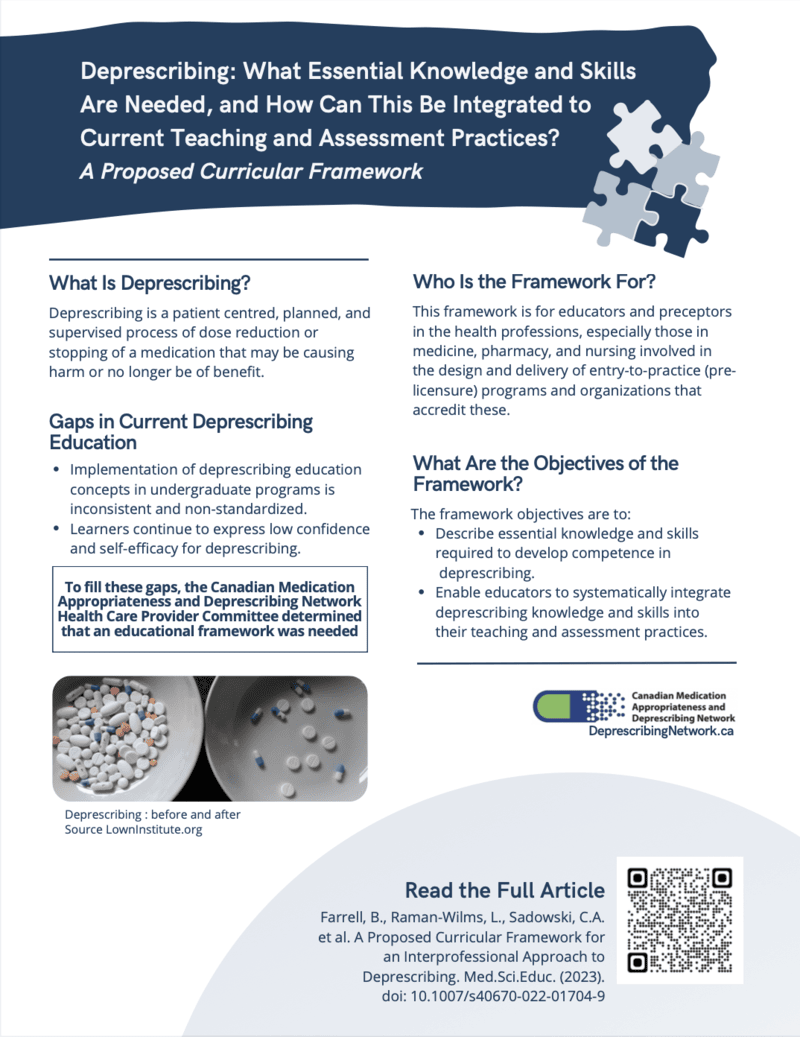Deprescribing Curriculum Development
In 2023, the Network’s Health Care Provider Committee published A Proposed Curricular Framework for an Interprofessional Approach to Deprescribing, the first framework for deprescribing education for Medicine, Pharmacy and Nursing entry-to-practice programs. This framework provides guidance on teaching and assessing deprescribing as part of a continuum of appropriate prescribing within an interprofessional context.
How was this framework put together?
To develop this framework, members of the committee sought input from Canadian healthcare professional educators, deprescribing leaders, and clinicians involved in the care of older people. This iterative process involved a literature review, consultations, several rounds of discussions, revisions, and group consensus.
Who is the framework for?
This framework targets educators in medicine, pharmacy, and nursing involved in the design and delivery of entry-to-practice (pre-licensure) programs and organizations that accredit these. The framework also supports the education of other healthcare professionals (e.g., physiotherapists, occupational therapists, dietitians, dentists, speech-language pathologists, social workers) who can identify medication safety concerns or adverse drug effects, and who may recommend non-pharmacological approaches that reduce reliance on medications.
What is the objective of the framework?
This framework describes essential knowledge, teaching strategies, and assessment protocols to promote interprofessional deprescribing skills. It aims to enable educators to systematically integrate deprescribing knowledge and skills into their teaching and clinical practices.
WHAT IS IN THE FRAMEWORK?
1) Deprescribing competencies
The framework includes the following seven deprescribing competencies that are relevant for Medicine, Pharmacy and Nursing. These competencies focus on the knowledge and skills that learners completing their entry-to-practice degrees should be able to perform successfully. These competencies are to be applied in collaboration with the patient and/or their family/care partners.
2) Teaching and assessment strategies
Deprescribing can be included early, midway, and later within programs. The framework proposes learning outcomes, examples of teaching and learning activities, and examples of assessment strategies that can be integrated throughout the curriculum in a sequential manner.
The following examples from the educational framework show how learning outcomes and activities could evolve with learner level.
Proposed entry-to-practice competencies to guide deprescribing curricula for pre-licensure healthcare professional learners in Canada
3) Deprescribing resources toolkit
The framework includes a toolkit of practical deprescribing resources for curricular and experiential learning. Click here to view toolkit.
Are you an educator interested in using this framework?
Educators interested in looking for ways to integrate deprescribing competencies into curricula are invited to contact the Network team.
Additionally, we invite educators to consult the Appendix, which includes ideas for mapping deprescribing competencies, knowledge and skills to their current prescribing curricula.
Shareable Resource:
Click here to download a PDF handout with general information on the curricular framework.
Help us spread the word: share it with your network!





